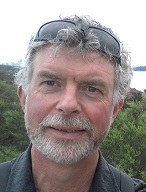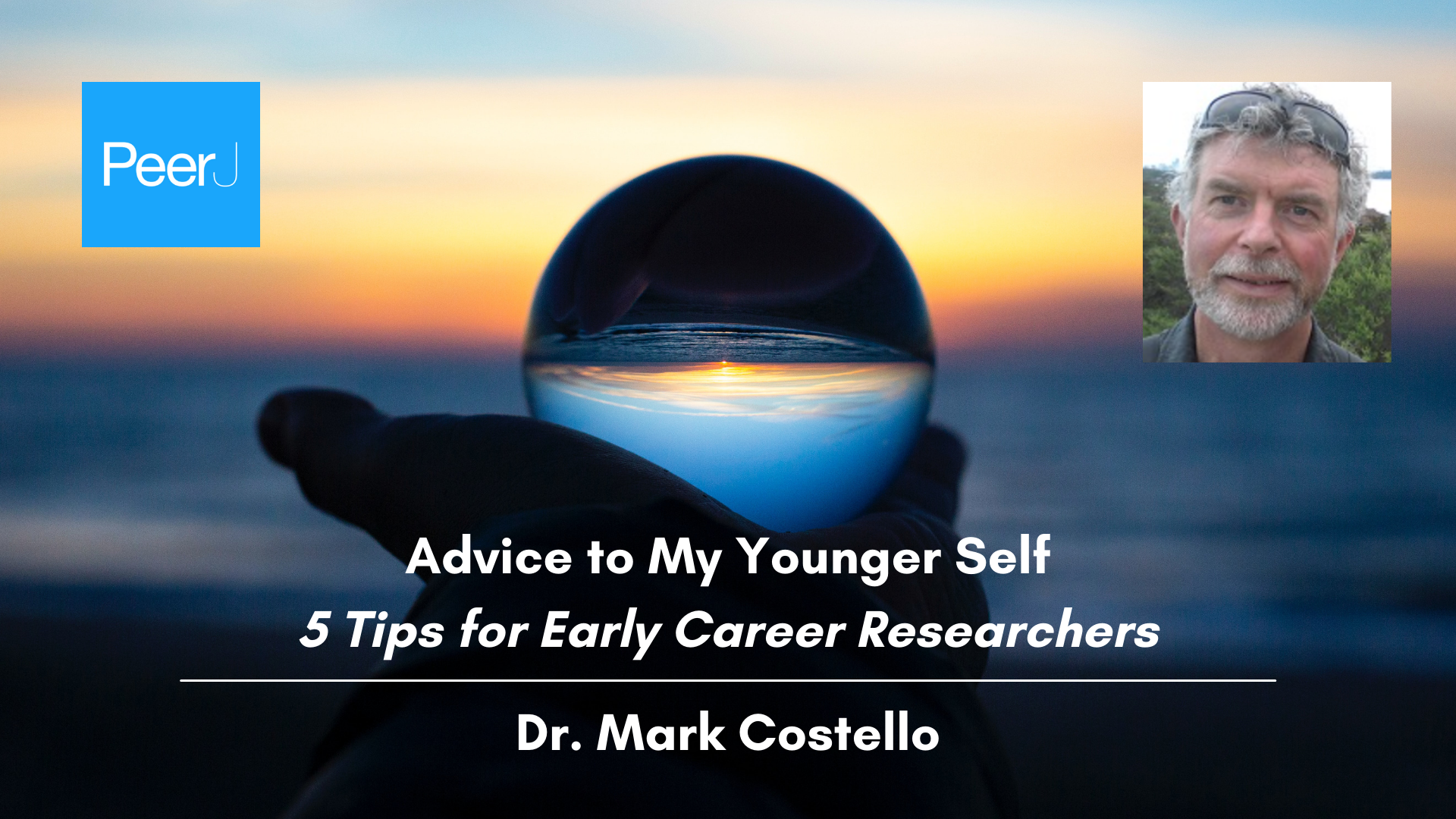PeerJ Communities Presents ‘Advice to My Younger Self – 5 Tips for Early Career Researchers’ an ongoing series to share advice and life lessons for Early Career Researchers from experienced and expert researchers.
We invited Mark Costello – Professor at Nord University, Norway, and a PeerJ Life & Environment Editorial Board Member – to begin this series with his valuable contribution below: “Happiness is a life directed by reason”.
This will be an ongoing blog series so keep an eye on the PeerJ blog to see more advice from our Editorial and Advisory Board Members. If you would like to contribute to the series please do get in touch: [email protected]
Advice to my younger self: Happiness is a life directed by reason
Because we are all different due to circumstances of nature and nurture, what works for one person may not for another. With that caveat, here are my top five tips to my younger self:
- Happiness is a life of activity directed by reason. You cannot achieve this unless you know what you want, and/or do not want, in life. Then you can plan your short-and long- term goals, and review and revise them as you like.
- Learn by thinking, reading, doing (field, lab, analysis), writing, and talking to experts and non- experts. Everything needs practice to improve, never stop practicing and learning.
- A healthy mind needs a healthy body – take care of it, eat well and exercise. Take an hour a day “health break” with whatever you enjoy (e.g., sport, meditation, walking, playing music). Use this time away to think and/or relax. And have a good sense of humour.
- Work hard, push through the tedious and difficult times (and people), and look externally to your organisation and field for solutions.
- Publish. Research is not complete until it is published. Write every week if not day – publish, publish, publish. Read more but not at the expense of writing. Publish in widely read journals and give presentations at conferences.
Uncertainty is normal in most jobs in the world and something you must live with. On the positive side, for many post-docs, being early-career can be a wonderful time. Enjoy the research and life’s opportunities. Figure out what you want in life and how to use your time to get there. This may not be in research or academia. Many people with PhD work in industry, government, consulting, teaching, and management. But if you want a research position then it is your research and publications that set you apart from others with similar skills and knowledge.
Foster collaboration with leaders in the field – you are likely to learn most from them and the relationships may help your career. So, work with people who are respectful and you can learn from. This is one of the benefits of moving around while a post-doc. Also consider visiting other labs to work on practical methods and co-write papers. Like in sport, you improve more by playing “up” a team rather than being the best player on your own team. This means engaging with people who bring you new skills, knowledge and ideas. Most success in research develops over years – think big picture and long-term, with each paper a stepping stone.
Take advantage of the short courses offered by employers on life and professional skills – on leadership, project and time management, teaching methods, and communication skills; and read related books and articles for tips. I wish I had done the course on stress management ten years earlier!
Question paradigms and new findings, and when you think you have an answer then ask “So what does this mean?” – why is it important and what additional work would make it more important. A piece of advice I received from the late HBN Hynes when he signed a copy of his classic book on the Ecology of Running Waters, was “do not believe all you read”.
Bio
 Mark Costello is from Ireland, where he studied in Galway and Cork, before post-docs in Plymouth (1987), Edinburgh and Aberdeen. He lectured for six years in Trinity College Dublin before establishing a research and consultancy company with his university research group. Having married a Canadian, he then became the Executive Director of the Huntsman Marine Science Centre in Canada before taking his first permanent academic position at the University of Auckland in New Zealand in 2004. He is now a Professor in Nord University in Arctic Norway. He has had a life-long fascination with the wonder of nature and feels lucky and privileged to have been able to make a career studying it.
Mark Costello is from Ireland, where he studied in Galway and Cork, before post-docs in Plymouth (1987), Edinburgh and Aberdeen. He lectured for six years in Trinity College Dublin before establishing a research and consultancy company with his university research group. Having married a Canadian, he then became the Executive Director of the Huntsman Marine Science Centre in Canada before taking his first permanent academic position at the University of Auckland in New Zealand in 2004. He is now a Professor in Nord University in Arctic Norway. He has had a life-long fascination with the wonder of nature and feels lucky and privileged to have been able to make a career studying it.


